It took blood or treasure or both for you to get those new pages written and up on your site. Even before that, you may have struggled in the local search results, struggled to figure out what may help you gain traction, and struggled to set aside the time to get it done. After all of that, wouldn’t it be shame if you didn’t see any SEO benefit for weeks or months? Wouldn’t it be a double shame if 10 more seconds of work could have saved your pages from weeks or months of invisibility?
My suggestion is simple: every time you create a new page (or post or similar resource), immediately go into Google Search Console and request indexing. That’s it*.

(*Of course, you will need to have installed Search Console – formerly known as Webmaster Tools. It’s free and should be quick for your website person to set up.)
Google is good at picking up new content, except when it’s not. You might assume that Google will crawl and index your new page right away. It often does, but often it doesn’t pick up your page for a good long while. The delivery route is unpredictable.
Here’s a recent example from one of my clients. A few months ago we put together a few pages on pretty specialized services. Nothing fancy, but those sorts of pages are the coin of the realm for him and for most of my clients, and they always serve us well. I routinely check Search Console to see what’s in the net, and so about a month later I checked on the new pages and saw that they weren’t even indexed. I saw nothing that would explain why Google ignored the page, so I requested indexing in Search Console.
What happened? Google indexed the page later that day, and it immediately started ranking for various relevant terms and soon even got a few clicks.
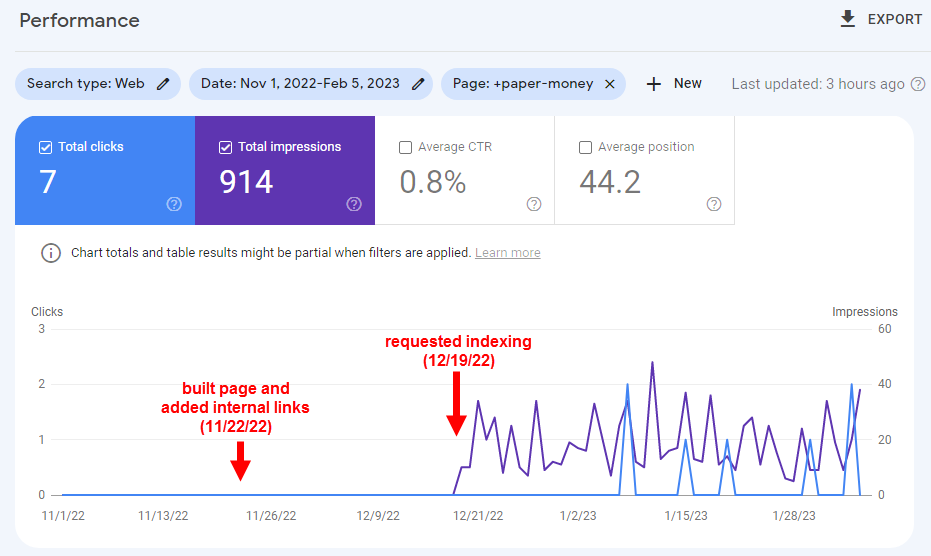
Neither the problem nor the solution was a fluke. We put up a few pages that day, all of which had the same issue. Here’s a mugshot of another page from that same batch.
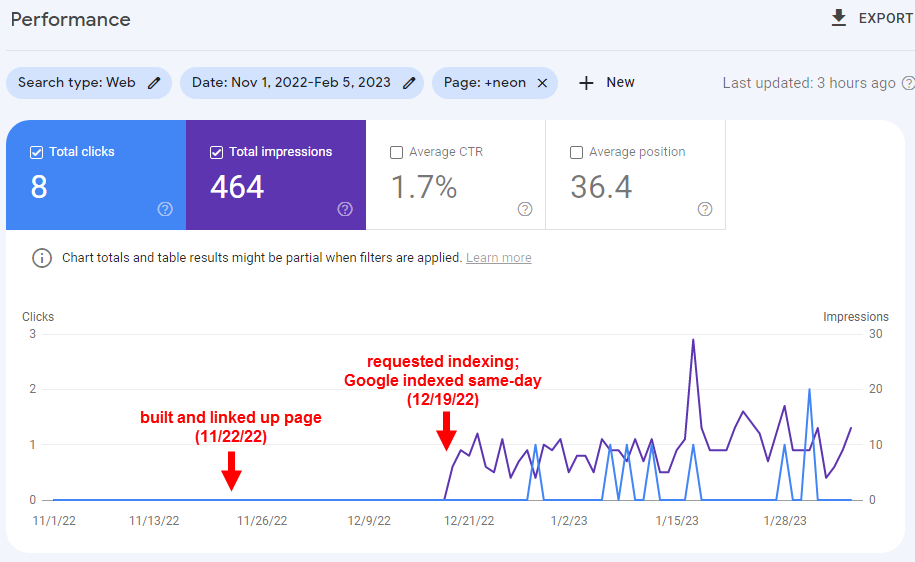
As you may have assumed, our XML sitemap had been squared away and submitted in Search Console, we had prominent internal links pointing to the new pages, and the site is pretty mature and frequently sniffed by Google, with no history of crawlability or indexation problems. Yet a month passed before Google picked up those pages, and that happened then apparently only because I requested indexing.
Lest you think it was just anomoly in that particular ite, below is an example from a different site, where we put up a new page just a couple of weeks ago. This time, I didn’t wait to see whether Google would pick up the page automatically. Rather, I requested indexing a few minutes after building the page (in the afternoon). It started showing up in the search results the following day.

Those results may look meager, and they are, but they’re always meager at first, and the pages do go places over time. Here’s what a similarly “niche” page for that first client has yielded after about 6 months of stewing.
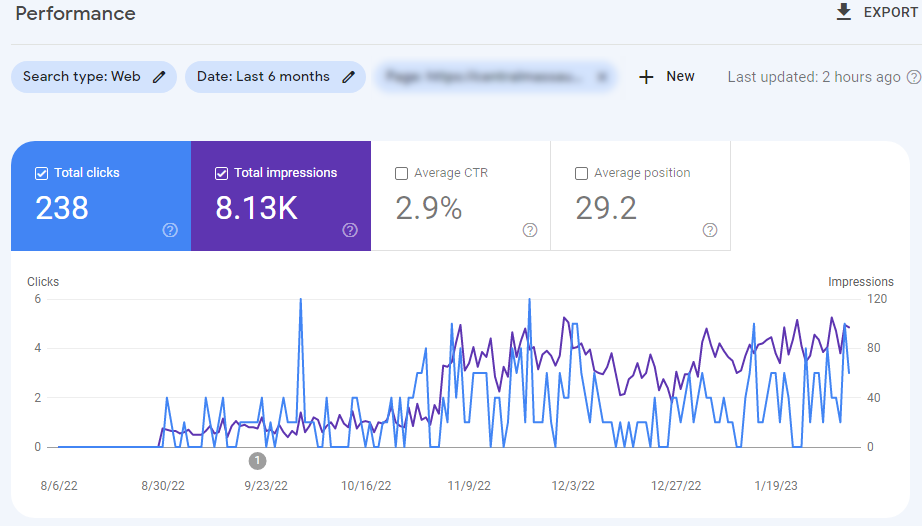
Here’s a crunchier example from a different client in a very different industry.
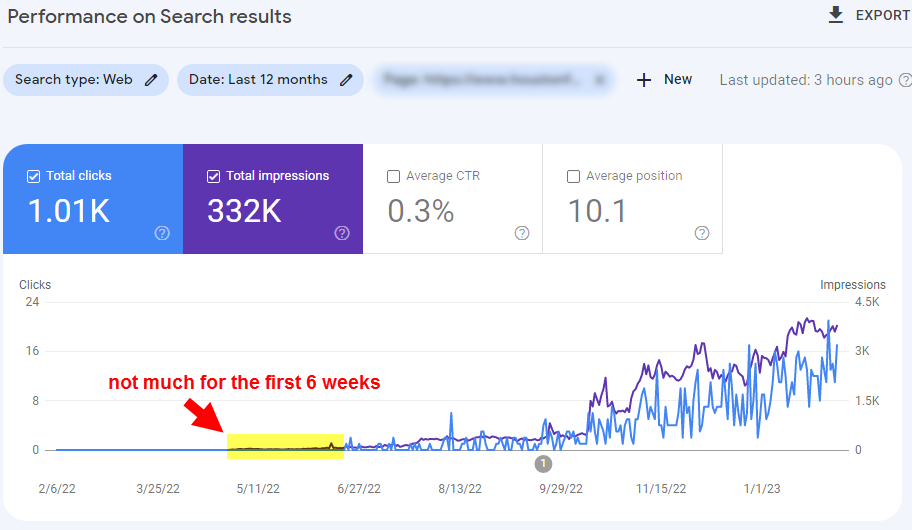
What does all of that mean for your local rankings? A few takeaways:
1. Requesting indexing can determine whether you start ranking next month or this week. Maybe you’re doing fine for business, and maybe you’re in no rush. On the other hand, maybe time is of the essence: If your business is new, or you’re in a seasonal industry, or you’re in a very specialized niche, or you’re desperate for business, or if your site has been dormant for a long time, those days or weeks may make all the difference.
2. Those newly-indexed pages can singlehandedly pull you into the local 3-pack results. As I always say, most of local SEO is just organic SEO in disguise.
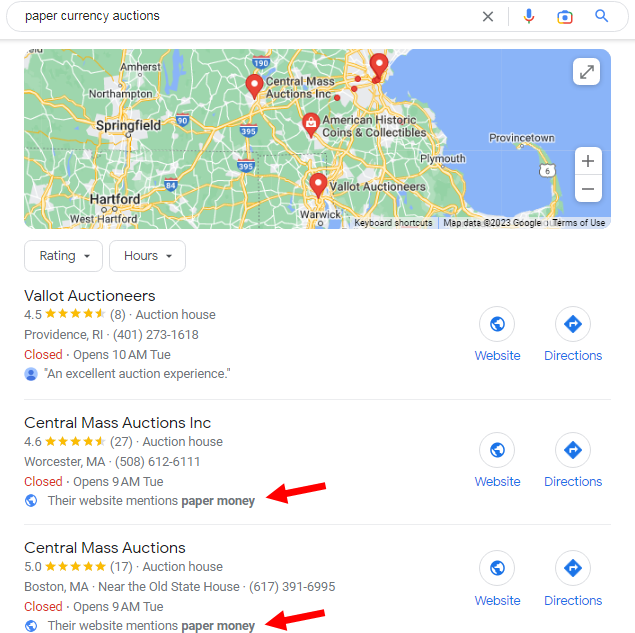
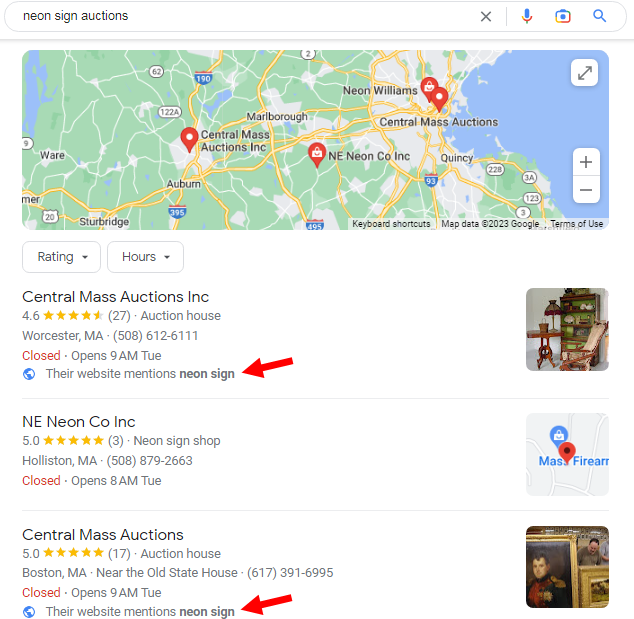
Depending on how specialized your service or product is, you may even get a local one-box result.
3. At least you’ll get the page indexed sooner, even if visibility and traffic take a while. You may not get impressions and clicks right away, and you probably will not if the search volume is super low for the term or family of terms you’re targeting. But at least you shorten Google’s GI tract and your wait time. The sooner you get the page indexed, the sooner you’ll either rank or you’ll be able to collect data you can use to get there.
4. The indexing request can offset (to some extent) using a website builder that produces sites Google often has a hard time crawling or indexing. I don’t want to name specific platforms, but if your site was built on a platform that rhymes with Fix or PearFace, then Google may already be slow to pick up on some of your pages. So not only should you request indexing of new pages as you put them up, but you should also probably do a roll call of your existing pages. I’d start in the “pages,” AKA “coverage” report in Search Console) and request indexing for any slowpokes.
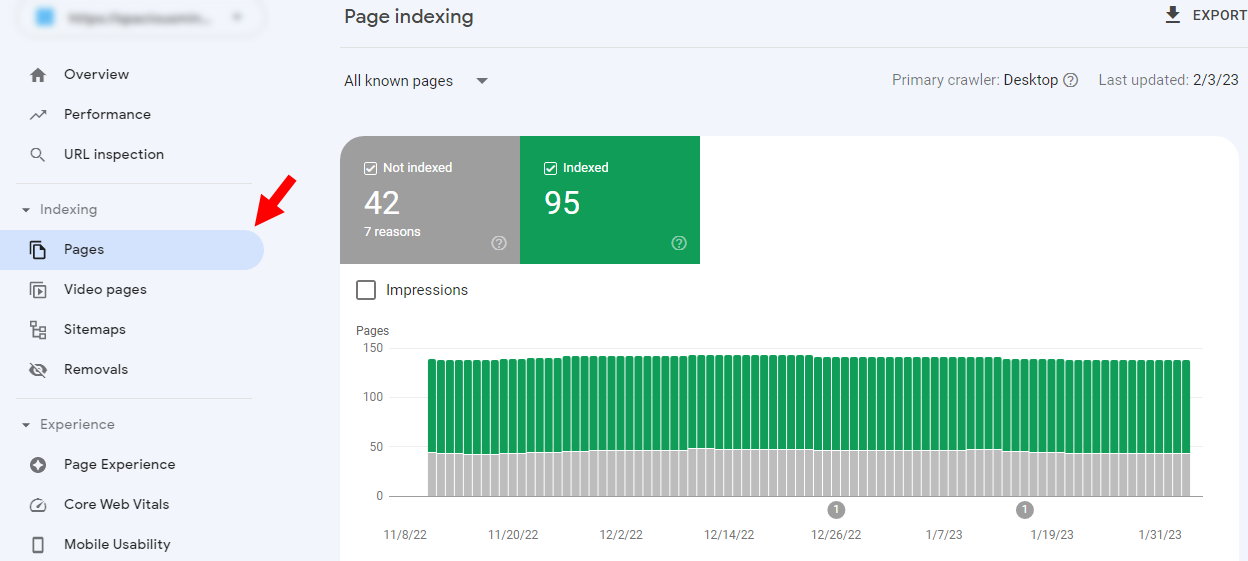
—
Not every page will set the world on fire, but any can become a top performer in time, and you never know exactly which one will light up, and you never know exactly when. Even a few solid-performing pages can add up to real visibility and traffic and income. So, for the love of Pete, just take an extra moment to make sure Google gets the page you created. You’ve already put in the work. It costs you 10 seconds to send it Certified Mail.
If you put 103 new pages and don’t want to moulder in your chair while you request indexing of each one, just pay your nephew a nickel to do it.
Hope you try it now and let me know what happens. I’d also love to know if you do any kind of test (even a quick n’ dirty one) or if you put new pages up to the stopwatch and share your splits. Leave a comment!

Great tip – we go it it every time. 🙂
That’s great SOP, Andy 🙂